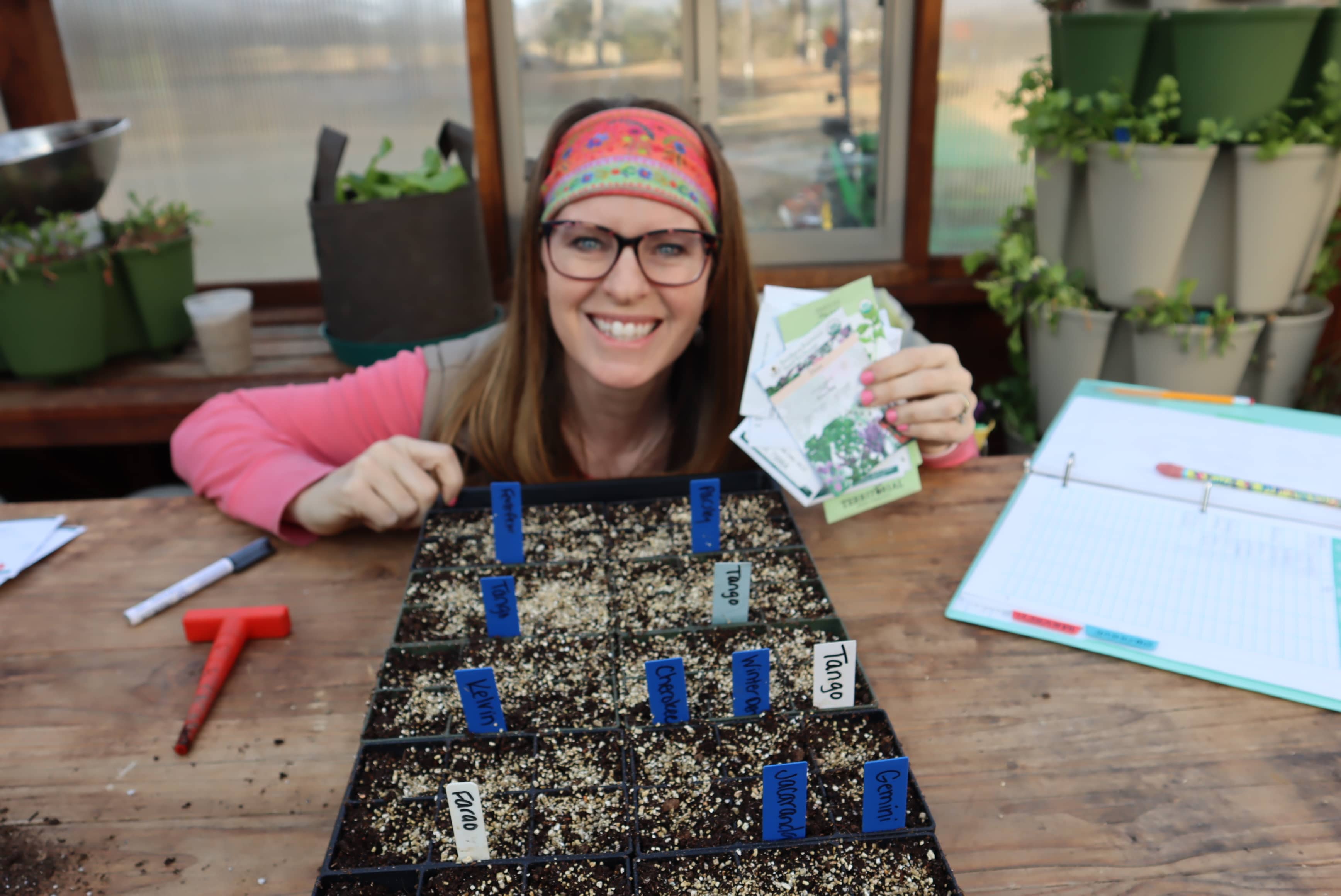Cool Season Seeds: Don’t Start These 5 Seeds Indoors
Cool season seeds need a different growing process than warm weather seeds. As beginner gardeners, we often only consider WHAT we want to grow instead of thinking about how those crops grow best.
Often, we don’t take into consideration the full process of growing cool season crops. Will we start seeds indoors or will we plant them directly into the ground? Or should we just purchase transplants from the garden center?
Plus, if we do decide to start them indoors, we have no idea when is the best time to start them. All of this confusion often leads to overwhelm before the garden even begins!
My goal is to help you understand which seeds you should NOT start indoors if you are a beginning gardener. If you are not a first-time gardener, I’ll also share some exceptions to my rules — higher level tactics — in case you want to give them a try yourself.
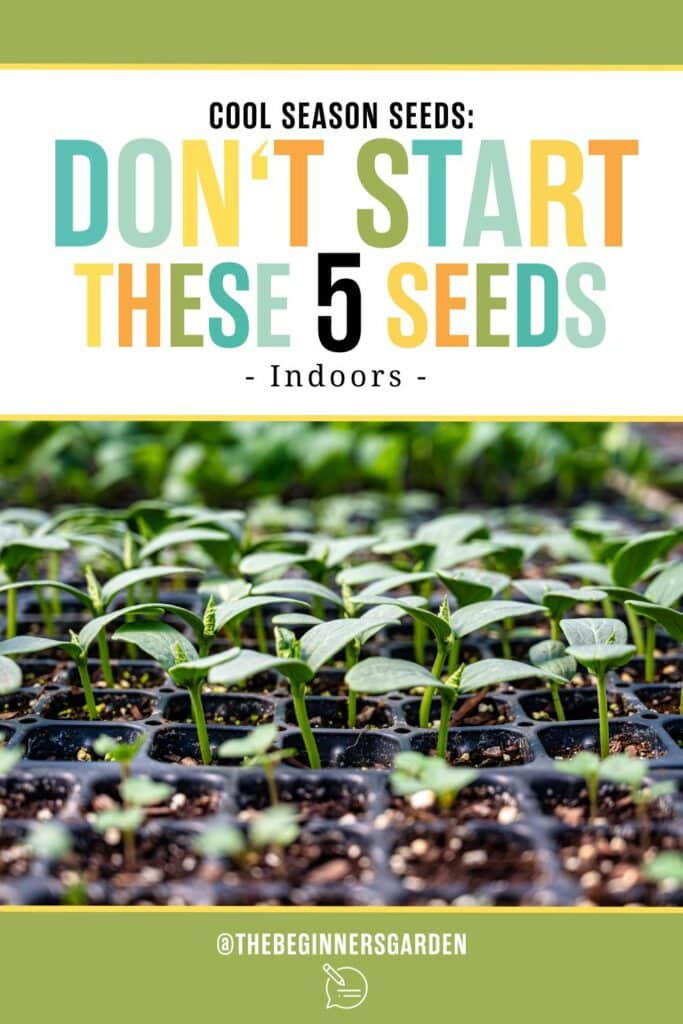
Before we begin, if you’d like to watch a podcast episode instead about cool season seeds that you should not start indoors, you can listen here:
Cool Season Seeds You Should NOT Start Indoors
Let’s go over the cool season seeds that I recommend you not start indoors and what to do instead with these topics:
Don’t forget to snag your 2024 Garden Planner now before the new year!
Cool Season Seedlings
If you are a brand new gardener and didn’t realize there was a difference between cool season crops and warm season crops, you are in good company. Lots of beginner gardeners don’t realize there is a difference, but you might be surprised to know there is.
Cool season crops are those crops that prefer to grow in cool weather and are typically grown in the early spring to early summer and in the fall. They don’t like heat, and most beginners don’t plant these early enough. Here are some examples of cool season crops that you can or should plant directly in your garden (no indoor seed starting required!).
Carrots
The first crop I don’t recommend that you start indoors is carrots. Carrots, as a root crop, do not like their roots disturbed.
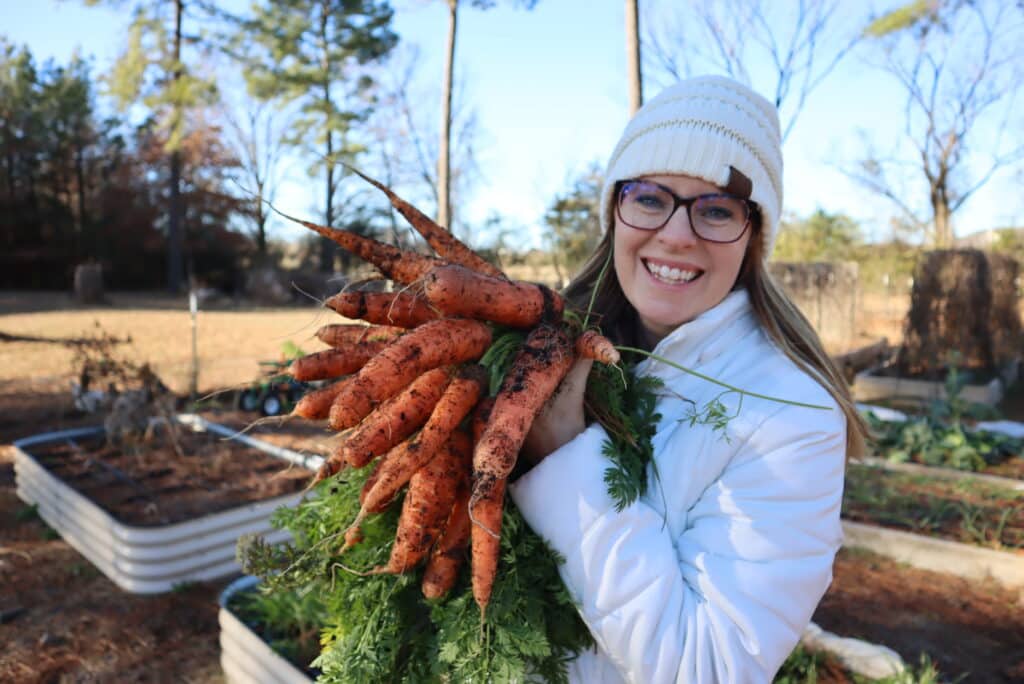
Also, if you are adventurous enough to try it (I have), there is a lot of labor involved in planting them.
Think about it. Each carrot sprout represents only 1 carrot, and when you are planting a lot of tiny seedlings in your garden, it’s a lot of work to transplant for what you receive back in your harvest.
If you have already started them, use soil blocks or something similar so you won’t disturb the roots and plant them in the garden soon after they germinate.
But for best results, plant these seeds directly in your garden soil, as early as 4-6 weeks before your average last frost date.
Beets
Next on the list of cool season seeds beginners may want to plant directly in the garden is beets. Beets are easy to directly sow in the garden, especially in the spring. Plus, as a root crop, even though they take to transplanting better than carrots, they still prefer little to no disturbance to their roots while they are growing.
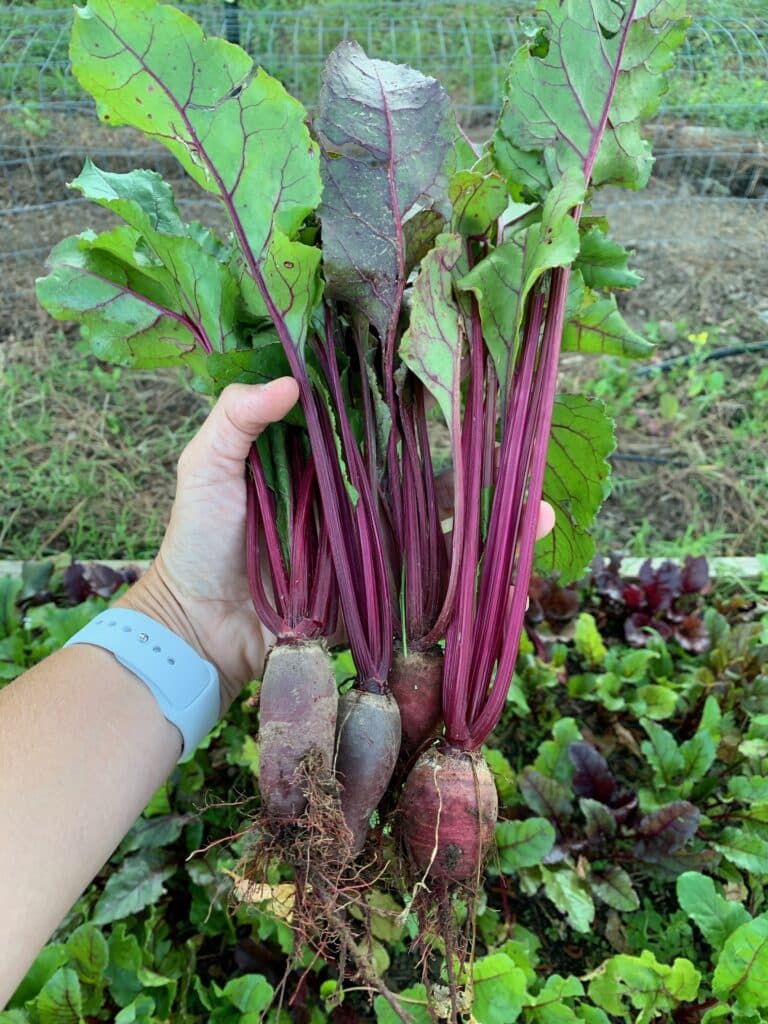
If you already started them indoors make sure you have enough grow light space and plant them in your garden before their roots begin to overtake their cells.
Greens Mixes
The reason I recommend NOT starting greens mixes indoors is because they are very easy to plant and grow if they are directly sown in the garden.
The main benefit of growing green mixes is a lush carpet of baby greens that you can harvest. Plant spacing is not a big deal, so there is no reason to start them indoors.
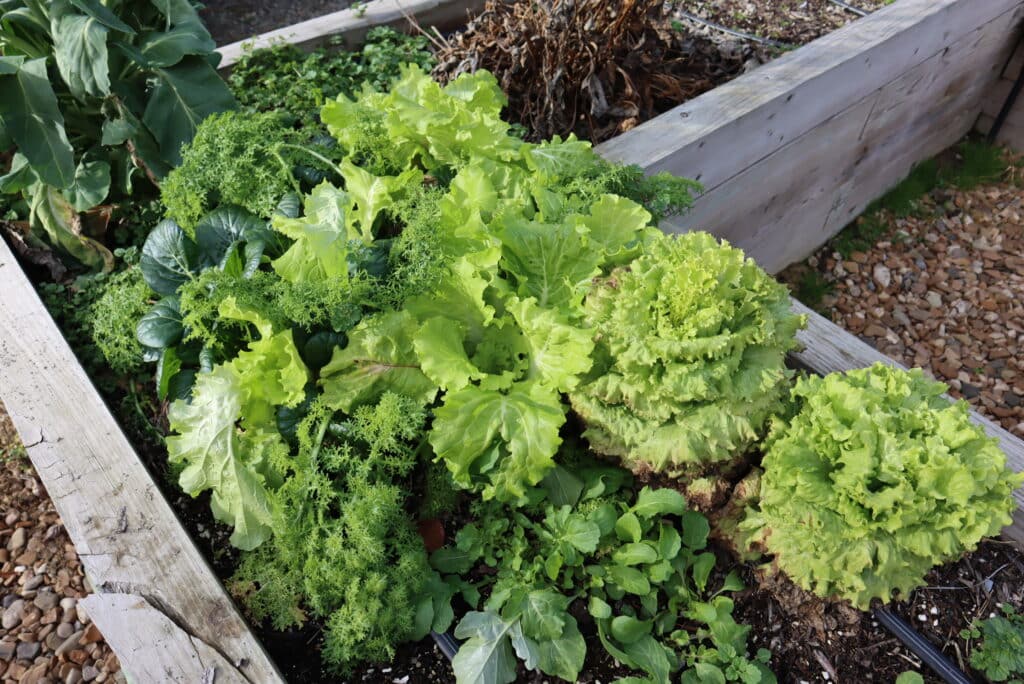
(If you want to see a step-by-step demonstration of the indoor seed planting process, I demonstrate my process in Beginner’s Guide to Seed Starting Workshop.)
Spinach
Our next cool season crop is spinach. The important thing to learn about spinach is that it is a very sensitive crop and doesn’t handle stress very well.
Spinach seedlings develop a taproot, which is one strong root, and because of that, your spinach seedling roots are sensitive to disturbance. When the plant is disturbed it can cause early bolting with distress to the seedling.
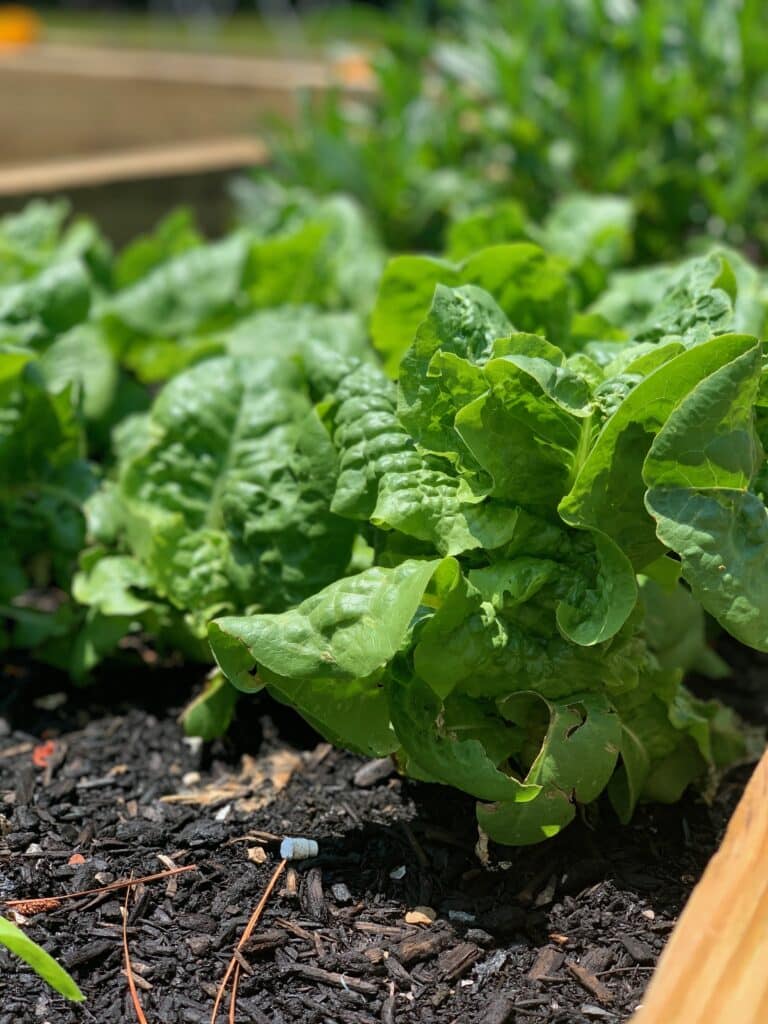
Spinach is a cool season crop and it will germinate in low soil temperatures, so it’s one of those crops you can directly sow in your garden early in the spring, or late in the fall, and not worry about starting from seed indoors.
If you have already started your spinach seeds indoors, make sure to use a deeper cell tray or soil block and make sure to plant early in your garden to prevent root disturbance.
Peas
And finally, peas are our final cool season crop that I recommend you don’t start indoors. Why? They’re just so easy to direct sow! Peas like the spring and the cool weather, which is why they are considered a cool season crop. They will germinate in cool soil, even if it does take them a bit longer than if the soil were warm. I direct sow peas about a month to six weeks before my average last frost date.
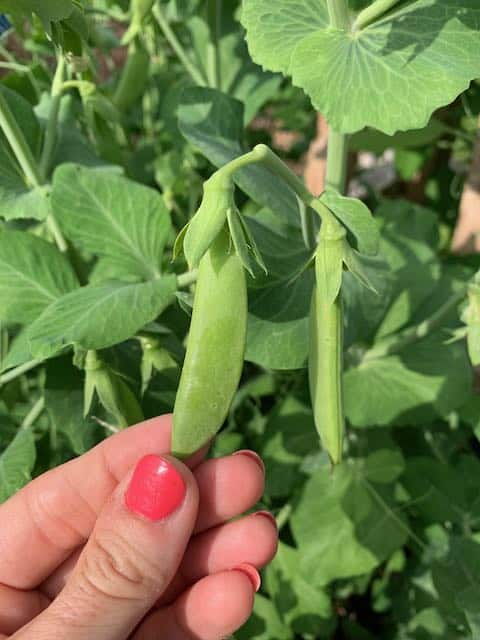
Another reason to opt for direct sowing is that for an ample harvest, you’ll need to grow more than is reasonable for your grow light space. If you are starting other seeds indoors, don’t waste the space with your grow lights when you know that peas can germinate in cool soil.
If you already started your peas indoors, make sure you have enough grow light space.
Ensure Cool Season Crop Success
Successful cool season gardening goes beyond choosing seeds; it’s about understanding how to grow them effectively. We’ve learned how to simplify the process for beginners, focusing on crops like carrots, beets, greens mixes, spinach, and peas, advising against starting them indoors. Whether you’re new to gardening or not, the key is recognizing the unique needs of each crop.
Seed Starting Quick Reference Guide
Which seeds should you start indoors? Which should you wait to plant directly in the garden? When? And in what soil temperatures do certain seeds germinate better? Grab this one-page quick reference guide to get your seeds sprouting and your plants growing strong!
Plus, I'll send you my "In the Garden E-mail" on Fridays, periodic updates on garden resources relevant to you, and get access to my entire bank of free garden downloads!
You are also agreeing to our privacy policy.

